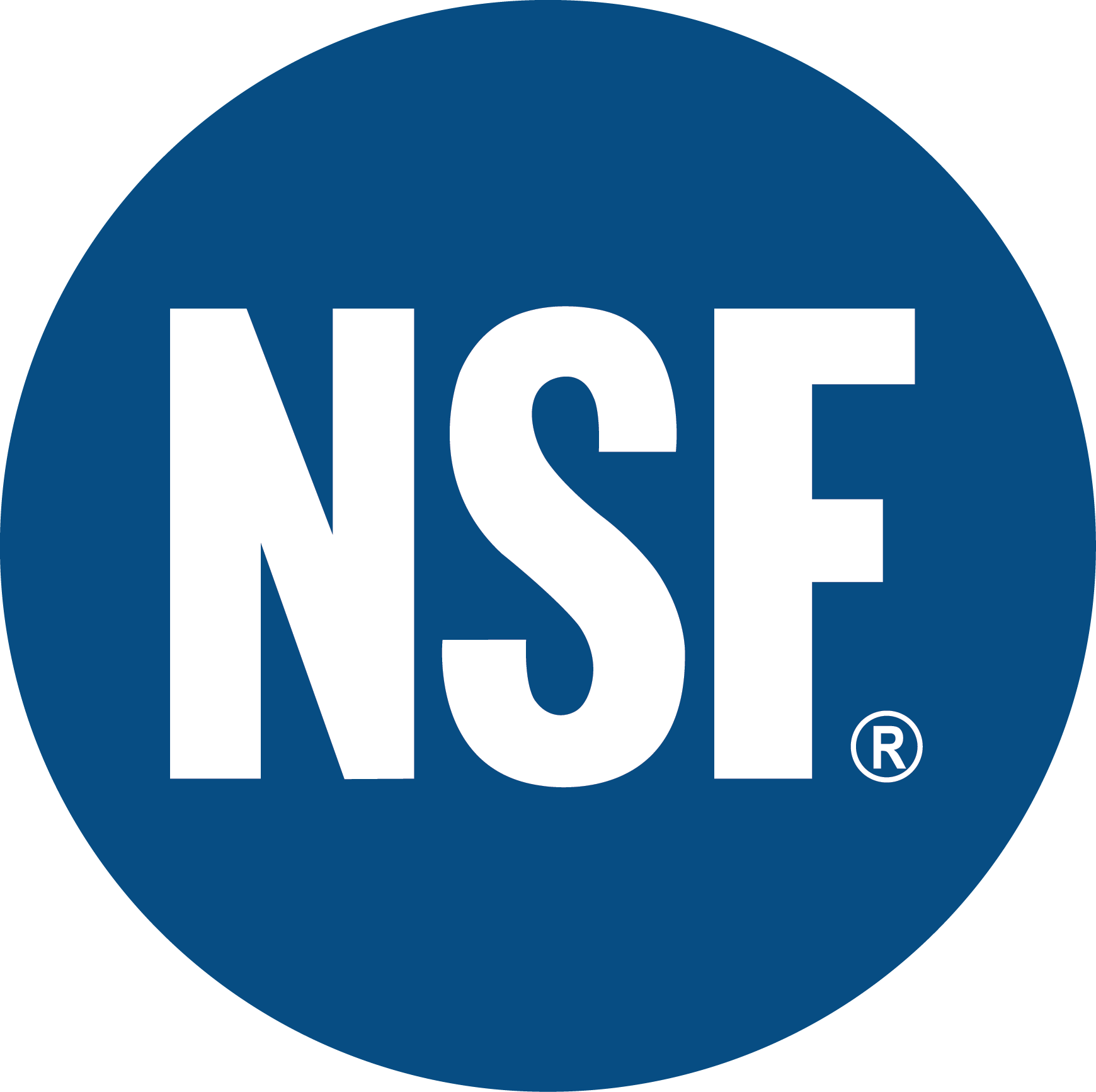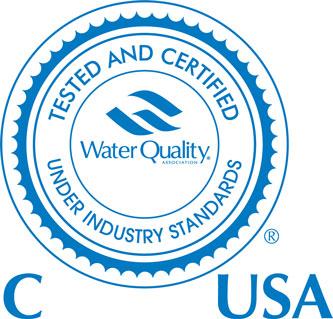NSF Water Filter Certifications
NSF Certified Water Filter
The difference between a good filter, a great filter, and the best filter, is performance backed by independent, third-party testing and verification. Any product or company can claim superior performance, but third-party performance certification means that those claims can be trusted. When it comes to independent, third-party certification of products related to the protection of food, water, and the environment, the premier global authority is NSF International.
NSF certification is a rock-solid assurance of quality, performance, and integrity. When a drinking water filtration system is certified by NSF International, it means that:
- The system meets the contaminants reduction claims of the manufacturer.
- The system is not adding anything harmful to the water.
- The system is structurally sound.
- The system’s advertising, literature, and labeling are not misleading.
- The system’s materials and manufacturing process do not change.

The difference between a good filter, a great filter, and the best filter, is performance backed by independent, third-party testing and verification.

You Benefit from NSF-certified Water Filters
NSF certification gives you confidence and assurance in your ability to protect your water and your family from harmful contaminants. When you use a Multipure NSF-certified drinking water filtration system, you know that your filter delivers on its claims, because it has been through NSF’s impartial and rigorous testing regimen. NSF lets you know that Multipure gives you performance you can count on.Everyone in your household can enjoy the benefits of an NSF-certified water filter from Multipure. With performance tested and independently proven, you gain the peace of mind that comes from knowing that your family, your friends, and your pets can enjoy and benefit from water that is cleaner, healthier, and better-tasting.
NSF certification is a big reason why filtered drinking water from Multipure is a superior alternative to bottled water; disposable plastic bottled water is not only more expensive, but does not necessarily meet NSF certification standards – and certainly not to the extent of Multipure’s industry-leading performance and standards. And, unlike bottled water, Multipure’s NSF-certified drinking water filters are far better for the environment.
How Is NSF Better than Other Independent Testing Labs?
While some companies use third-party labs to test their product performance, those labs are often not wholly impartial to the client, and do not perform the same degree of testing procedures as NSF International.
NSF undertakes a complete evaluation of every aspect of a product’s development and manufacture before it can earn certification.
This includes material analyses and product testing at every stage of production, coupled with unannounced production plant inspections and testing at both the factory and off-the-shelf. NSF certification is not a one-time procedure; the testing and certification process requires regular on-site inspections of manufacturing facilities, as well as periodic retesting of products against the most current national standards. All of this is performed to instill absolute confidence in the performance claims of a product for the consumer.
Some companies promote their products as “tested according to NSF standards” or “meets NSF testing requirements,” but these claims are not a true guarantee of quality because it does not explicitly state NSF testing and certification. Manufacturer-driven testing – even to NSF’s standards – does not equate to the ongoing process of repeated inspection and testing that comes with true NSF certification. NSF assures quality and integrity because NSF does not allow the manufacturer to affect the testing process, nor does NSF stop the testing and evaluation process once it has begun. This is why Multipure is justifiably proud of our NSF-certified drinking water filtration products, because the NSF badge is a demonstration of performance, quality, and integrity.
Multipure Certifications
- NSF Listing
- NSF Charts
- NSF/ANSI Standard 42: Aesthetic Effects (e.g., chlorine or particulate matter)
- NSF/ANSI Standard 53: Health Effects (e.g., lead, asbestos, microcystin, PFOA/PFOS, trihalomethanes, etc.)
- NSF/ANSI Standard 401: Emerging Compounds and Incidental Contaminants (e.g., pest repellents, herbicides, pharmaceuticals, etc.)
- NSF Protocol P231: Microbiological Purifier (e.g., bacteria, viruses, and live cysts)
